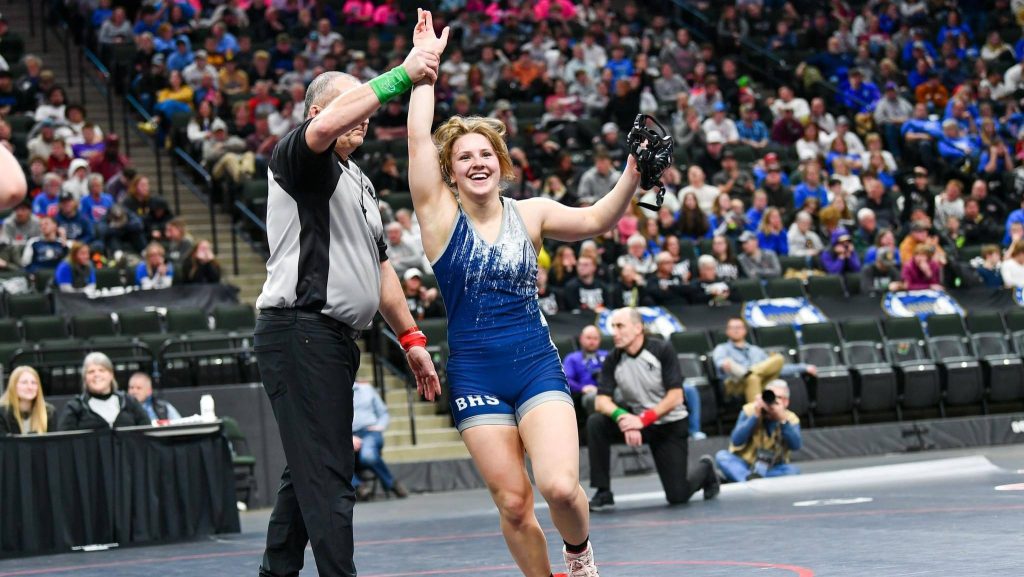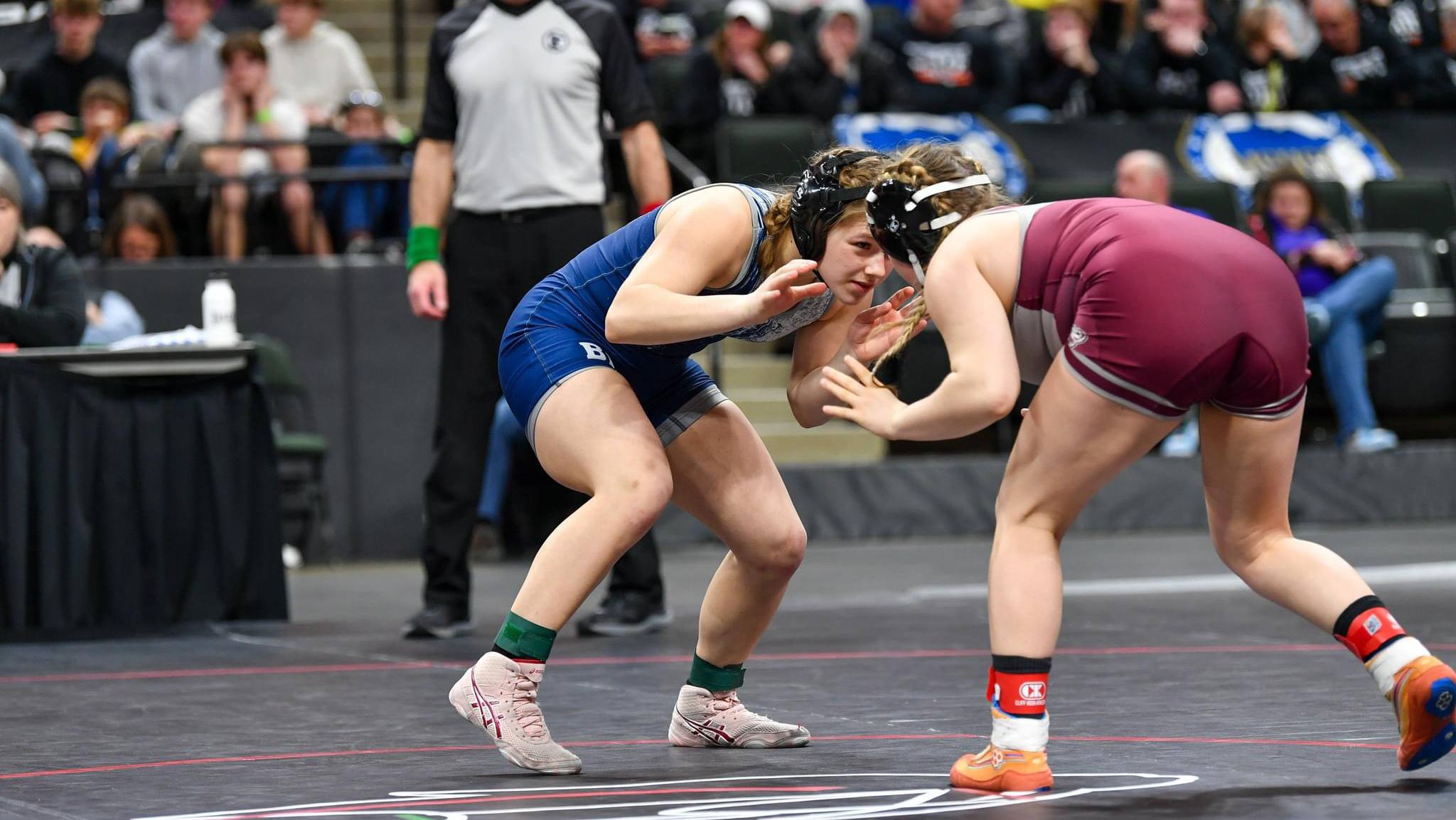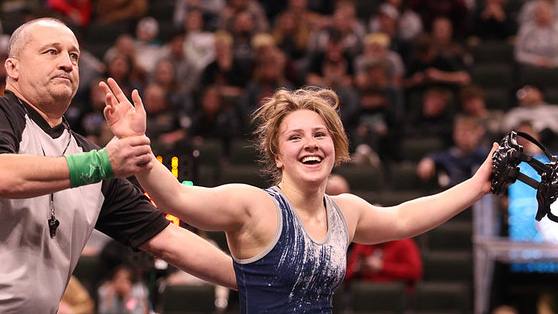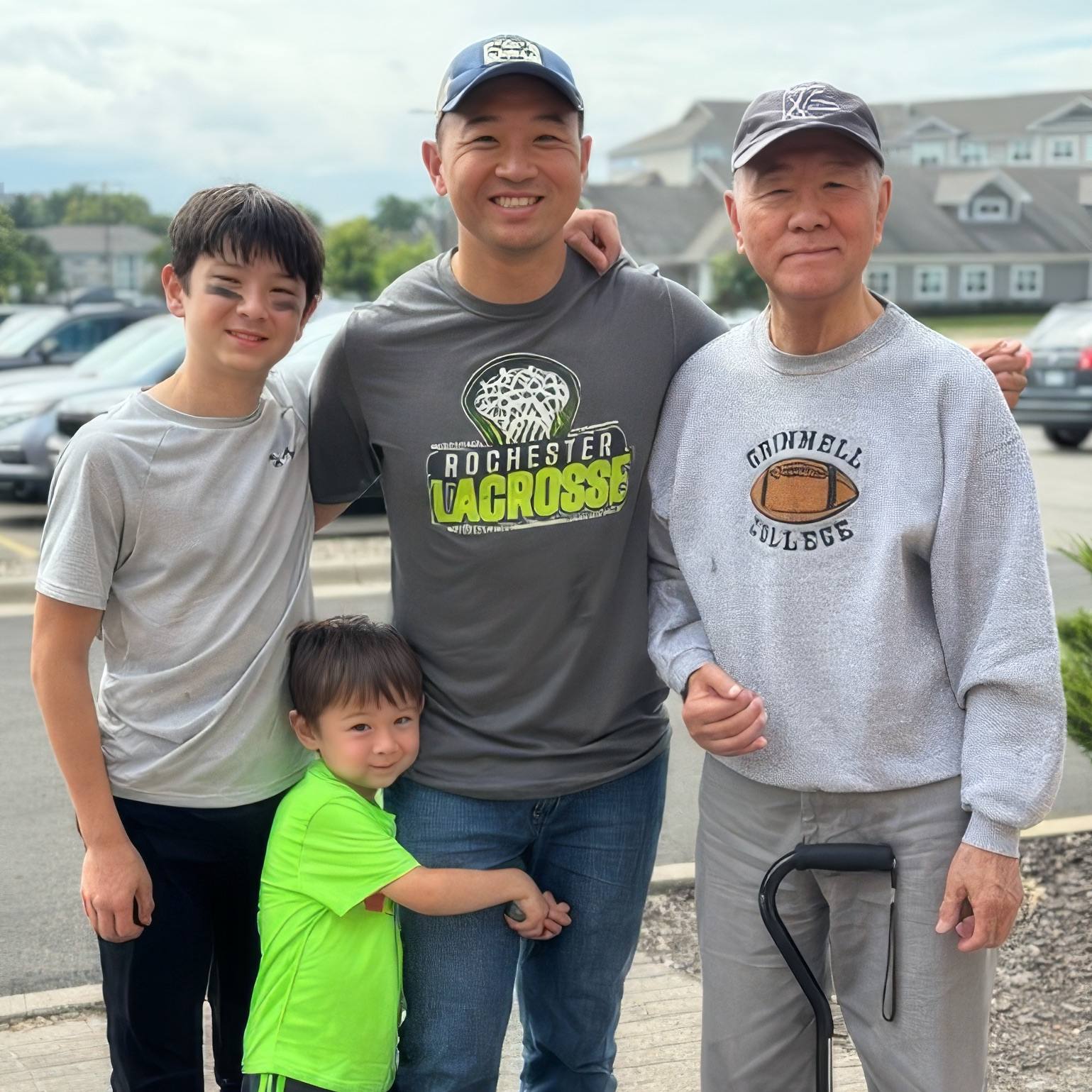
Tommy John surgery is not just for baseball pitchers. Ask Kylie Donat of Bemidji, Minnesota.
Kylie is an 18-year-old high school swimmer, track and field athlete, and wrestler. She has been wrestling since 2021, the first year that girls' wrestling was a sanctioned high school sport in Minnesota. By 2023, Kylie was favored to win her weight class at the state championship.

Then came the practice that changed everything.
In January 2023, her wrestling partner threw her down on the mat. Kylie tried to catch herself, but her left elbow bent awkwardly, and she heard popping sounds. A week later, she used the Heimlich technique on a teammate who was choking on her food. The maneuver worked, fortunately, but it made Kylie's injury – to her medial ulnar collateral ligament – worse.
"It was a complete rupture, as bad as it could be," says Christopher Camp, M.D., a Mayo Clinic orthopedic surgeon who had a virtual appointment with Kylie in March 2023.
Despite the injury, Kylie was eager to return for her senior season and compete in the state championship. Dr. Camp put Kylie on a standard short course of nonoperative treatment consisting of rest and physical therapy to give the ligament time to heal and stabilize on its own. But it didn't stabilize, so surgery was the next step.

A week later, Dr. Camp performed the ligament reconstruction using the anatomic technique, a new approach he developed at Mayo Clinic. This procedure builds on Tommy John ligament reconstruction surgery, which was first performed on baseball pitcher Tommy John in 1974.
The injury is most common in baseball players, but it can affect athletes in other throwing sports such as softball and javelin. Wrestlers and gymnasts may sustain traumatic versions of the injury.
During surgery, Dr. Camp repaired Kylie's ligament, gave her a new one (taking a tendon from elsewhere in her body to form a new ligament) and added an InternalBrace (2-millimeter-wide suture tape) for stability.
"It's designed to recreate the normal anatomy of the ligament," Dr. Camp says. "It uses newer fixation and anchor devices that are smaller and stronger, and it increases the contact area between the graft and bone to create a larger surface area for healing."
Kylie went home the same day and began to focus on her recovery.

Once Kylie got her splint off and was fitted for a brace, she began her rehab in earnest. She did a lot of stretching so her injured arm could move like the other one. Once she got full movement back, she started building the muscles in her entire body and around the elbow, including the shoulder, bicep, tricep and forearm.
"Knowing that I had lost that opportunity (to compete) due to an injury, I was ready to get back out there," Kylie says. "I knew it would take a lot of work."
Kylie's mother, Sara Donat, says her daughter was determined, but knew she couldn't rush her recovery. Once Kylie was cleared to do pushups and work more of her muscles during physical therapy, she started to have hope. She added swimming to her regimen, which she knew would be good for her elbow and overall athletic shape. In October 2023, she wrestled for the Minnesota Storm in Iowa.
"After that, I was like, 'Wow! I'm really ready to wrestle,'" Kylie says.
Traditionally, the recovery from this type of surgery is a year or longer for a throwing athlete. For a wrestler, recovery is usually nine to 12 months. Kylie got back to wrestling in five months.

"She did a great job on her rehab and physical therapy," Dr. Camp says. "She was extremely motivated and worked hard. We had a very clear goal – wrestling – so she could compete in the state tournament."
In March 2024, Kylie fulfilled her promise to herself by winning her weight class at the state wrestling tournament. Her elbow didn't cause any problems.
"It was the best feeling," she says.
Related Articles







